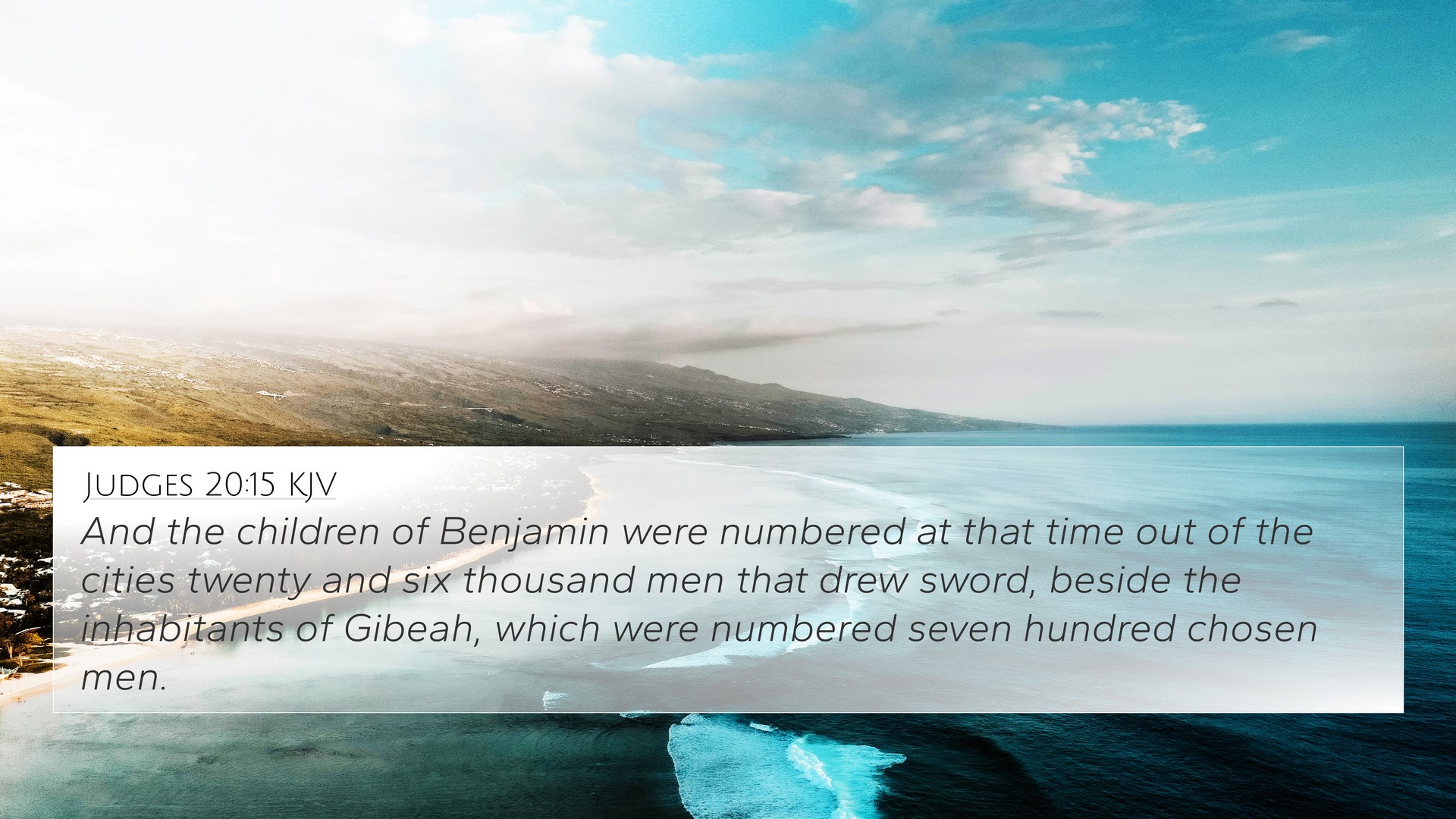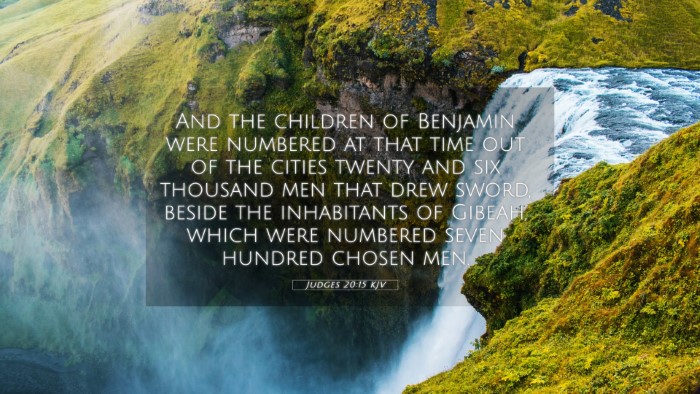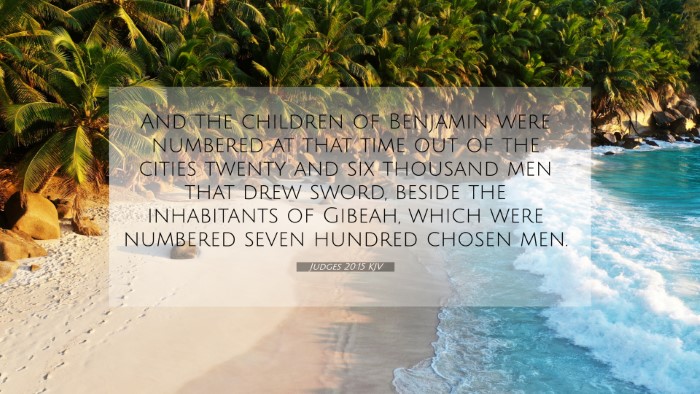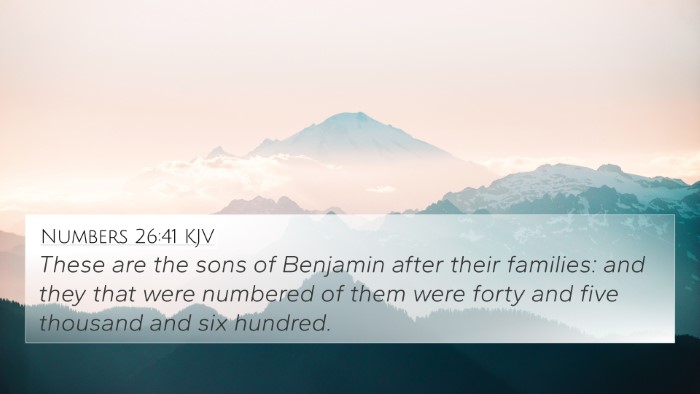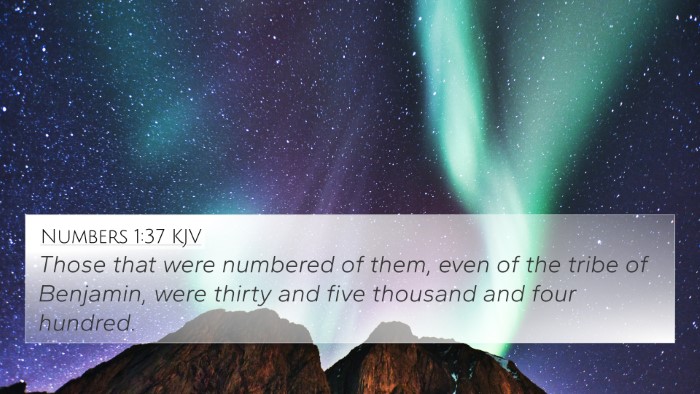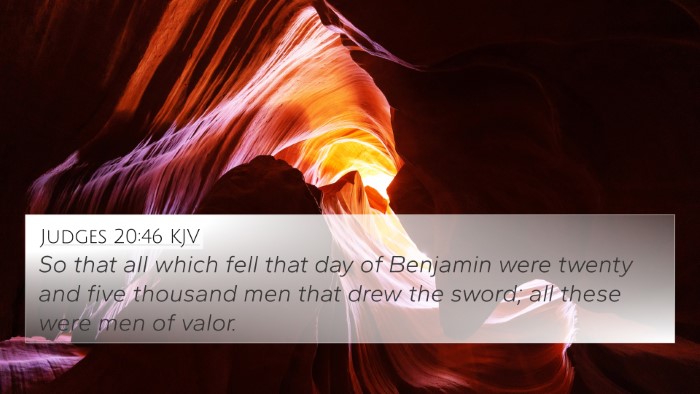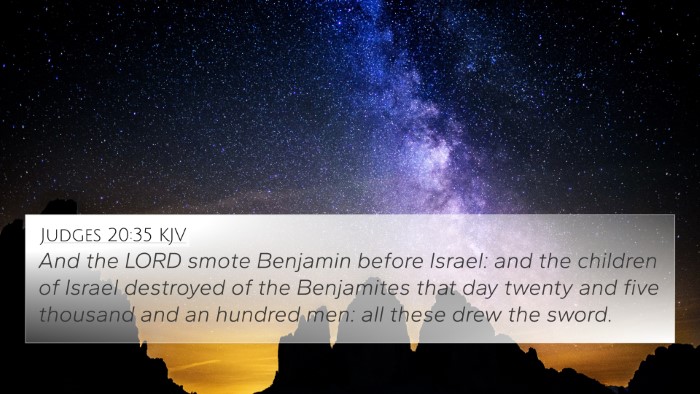Understanding Judges 20:15
Judges 20:15 states: "And the people of Benjamin numbered at that time out of the cities twenty and six thousand men that drew sword, beside the inhabitants of Gibeah, which were seven hundred chosen men."
Summary of Judges 20:15
This verse provides a crucial count of the warriors from the tribe of Benjamin during a significant conflict in Israel's history. It sets the stage for the ensuing events that reveal God’s judgment upon one of Israel's tribes. The population reflects not only the military strength of Benjamin but also its dwindling numbers from the previous conflicts outlined in the narrative.
Commentary Insights
- Matthew Henry Insights:
- Henry emphasizes the tragedy of civil war and the grievous state of affairs in Israel causing God’s anger.
- The mention of the warriors indicates both pride and desperation within the tribe of Benjamin.
- Albert Barnes Insights:
- Barnes notes that the exact number signifies the readiness of Benjamin to defend itself despite facing severe judgment.
- He links this event to the broader theme of Israel's cyclical disobedience and the consequences that follow.
- Adam Clarke Insights:
- Clarke discusses the choice of "700 chosen men" as a notable indication of elite warriors, hinting at their tactical advantages.
- He compares these figures to past narratives, drawing parallels in the might of Israel's tribes and their eventual declines.
Cross References
Judges 20:15 can be linked with several other scripture passages that enrich its understanding:
- Judges 19:29-30: The lead-up to the conflict arising from grievous sin.
- Judges 20:1: The call to arms by the Israelites against Benjamin.
- Deuteronomy 13:12-15: The commandment against cities that fostered idolatry, paralleling the Benjamite scenario.
- Joshua 18:11-12: The allotment of land to the tribes speaks to their beginnings as a united entity.
- 1 Samuel 10:20-24: The significance of a king chosen from the tribe of Benjamin, contrasting their current decline.
- Psalm 68:27: Mention of the tribe of Benjamin in the context of victory, contrasting with their current plight.
- Romans 11:1: Discussion regarding the remnant of Israel, resonating with the theme of survival amid judgment.
Thematic Connections
The events chronicled in Judges present a pivotal moment in Israel’s history characterized by:
- Disunity among tribes: Reflecting deeper issues within the nation of Israel.
- Covenant unfaithfulness: Serving as a backdrop for divine confrontation.
- The cycle of sin: How the Israelites repeated patterns of turning away from God.
Applications for Study
This verse invites deeper exploration within various contexts, including:
- Bible cross-reference study tools: Utilizing resources like a Bible concordance or cross-reference guide can assist in navigating interconnected themes.
- Identifying Old and New Testament connections: Understanding how God's judgment persists through time and impacts both Testaments.
- Cross-referencing themes: Analyzing the similarities and differences in narratives across texts can reveal God's ongoing narrative with His people.
- Inter-Biblical dialogues: Exploring how other Biblical authors reference these themes can provide depth to understanding God’s character.
Conclusion
Judges 20:15 serves as a critical reflection on the community's spiritual state, showcasing the magnitude of their strife but also opens doors for discussion about covenant faithfulness. The interconnections between various Biblical texts enhance understanding through comparative analysis and thematic explorations.
